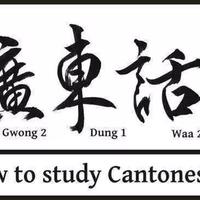好過冇-The Fisherman & The Little Fish
better than none|The|Fisherman|the|Little|The Little Fish
Besser als nichts – Der Fischer und der kleine Fisch
Better Than Nothing - The Fisherman & The Little Fish
Bonne journée - Le pêcheur et le petit poisson
Лучше, чем ничего — Рыбак и рыбка
Bättre än ingenting - Fiskaren och den lilla fisken
好过冇-The Fisherman & The Little Fish
有個 好 窮 嘅 漁夫 一直 靠 食 自己 捉 到 嘅 魚 維生 。
a|very|poor||fisher|always|rely on|eat|oneself|catch|||fish|make a living
había un|bueno|||pobre pescador|siempre|dependía de|comer|su propia|atrapar|que atrapó||pescado|sobrevivir
Da war ein armer Fischer, der von dem Fisch lebte, den er fing.
A poor fisherman has been living on the fish he catches.
Il y avait un pauvre pêcheur qui vivait du poisson qu'il attrapait.
有 一日 佢 好 唔 好 彩 , 只 係 捉 到 條 魚 毛 仔 。
have|one day|||||lucky|only||caught||fish|fish|fish fry|baby
|un día||muy||muy|suerte|solo|solo|atrapó|capturó|una|pez|pelusa|pequeño
Eines Tages hatte ich das Glück, nur einen kleinen Fisch zu fangen.
One day I was so good, I was just lucky, I just caught a fish hair.
ある日、私はとても幸運で、若い魚しか捕まえませんでした。
正當 佢 準備 將 條魚 毛 放入 籃 嗰 陣 , 條魚 毛 就 突然 開聲 講喇 :「 漁夫 先生 , 求 你 放 咗 我 啦 。
"Just as"||"getting ready"|"about to"|the fish||put in|basket|that time|moment|the fish|fur|then|suddenly|speak up|started speaking|fisherman|Mr|Please|you|put|past action particle|I|
just when||preparando|a|la pez|剝皮|en|cesta||cuando|la||entonces|de repente|habló|habló|el pescador|señor|por favor|tú|pon||yo|por favor
Gerade als er das Fischhaar in den Korb legen wollte, sagte das Fischhaar plötzlich: „Herr Fischer, bitte lassen Sie mich los.
Just as he was about to put a piece of fish feather into the basket, he suddenly said: "Mr. Fisherman, please let me go.
魚の羽をかごに入れようとしたところ、いきなり「フィッシャーマンさん、行かせてください。
我 咁 鬼 細 條 , 拎 我 返 去 都 嘥 力水 啦 。
I|so|"so"|so small||carry|I||go to|even if|waste of effort|waste of effort|
yo||tan poco|tan pequeño|cosa|||volver|a casa|también||energía|partícula final
Ich bin so ein dünnes Stück Scheiße, ich bin voller Wasser, wenn du mich zurücknimmst.
I'm such a thin piece of shit, take me back with all my strength.
不如 等 我 大條 啲 、 好食 啲 , 到時 我 再 畀 你 食 啦 好 冇 ?
not as good as|wait|I|bigger||tastier||When the time|me||give|||||not
mejor que|espera|yo|más grande||más sabroso||en ese momento|yo|otra vez||tú|comer|partícula final|bueno|
Why don't I wait for my big slices and good food, then I will eat you again, how good?
」
漁夫 依然 將 佢 放入 籃 , 之後 就 話 喇 :「 放 你 走 嘅 話 , 我 就 真 係 傻 囉 。
|仍然|||||||||||||||||||
|still|||||afterwards||said|particle indicating completion|put||leave|||I||really||foolish|
pescador|todavía|va a||en|cesta|después|entonces|dijo|partícula final|dejar|tú|dejar||si|yo|entonces|realmente|realmente|tonto|pues
The fisherman still put the canal in the basket, and then said, "If you let go, I'm really stupid.
漁師はまだ彼をかごに入れて、それから彼は言いました:「あなたがあなたを手放すならば、私は本当に愚かです。」
幾 細條 都 好 , 都 好過 冇 吖 。」
"how"|thin strips||||"better than"|none|ah
cuántas|delgadas|todos|bien|también|mejor que||¿verdad
A few thin strips are good, better than nothing. "
何もないよりはましで、いくつかの薄いストリップが良いです。 「」

